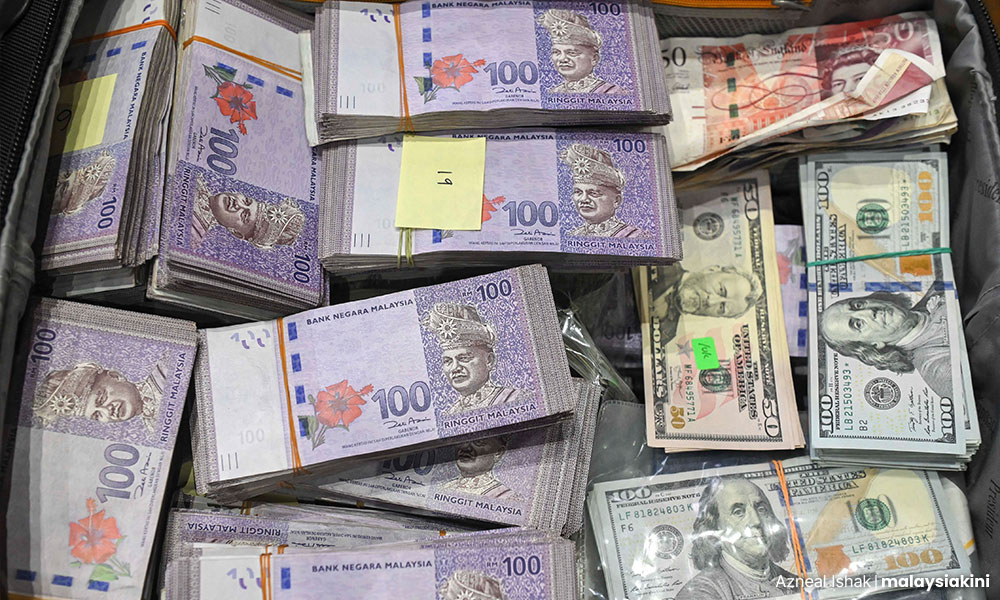Prime Minister Anwar Ibrahim today said that other Asean currencies were declining and not just the ringgit, with the Singaporean dollar being the only currency in the region bucking the trend.
He pointed out that the Japanese yen and Chinese renminbi were also sliding.
“We are facing the problem of the ringgit declining that is also affecting the Japanese yen, Chinese renminbi, and all other Asean currencies except for Singapore's,” he said in his speech officiating the Central Zone Madani Rakyat programme closing ceremony at Kuala Selangor Sports Complex.
The ringgit has been hovering around the RM4.77 to RM4.78 mark compared to the US dollar in the past few days of trading.
This led to criticism from various quarters, including the opposition, on the government’s handling of the economy.
Yesterday, Anwar called for an end to political attacks over the declining ringgit.
The government is making efforts to improve the situation and ensure that the currency rebounds, he said.

Anwar in his speech today said there needs to be a measured response to the ringgit decline.
"When the ringgit fell, one of the solutions offered was to increase the Overnight Policy Rate (OPR).
"However, that step can result in an increase in interest rates for car loans, housing loans and loans to small traders. This can result in a higher debt burden for those with such loans," he added.
The government, however, has indicated that it did not want the OPR to be increased.
Anwar, who is also the finance minister, reiterated that the ringgit decline has not affected investor confidence in Malaysia, while inflation and unemployment were on the decrease.
Approved investments
On Thursday, he announced that Malaysia recorded total approved investments of RM329.5 billion last year which is 23 percent higher than in 2022. Foreign investments were the main contributor at 57.2 percent, compared to domestic investments at 42.8 percent.
This was touted as the highest amount of approved investments in the country’s history.
Critics, however, noted that approved investments would take time for their economic impact to be realised.
When asked today whether it was too early to celebrate the approved investments, Anwar replied in the negative.
“No, it’s approved,” he responded when questioned by Malaysiakini.




No comments:
Post a Comment
Note: Only a member of this blog may post a comment.